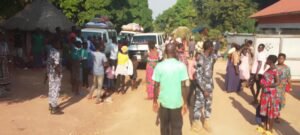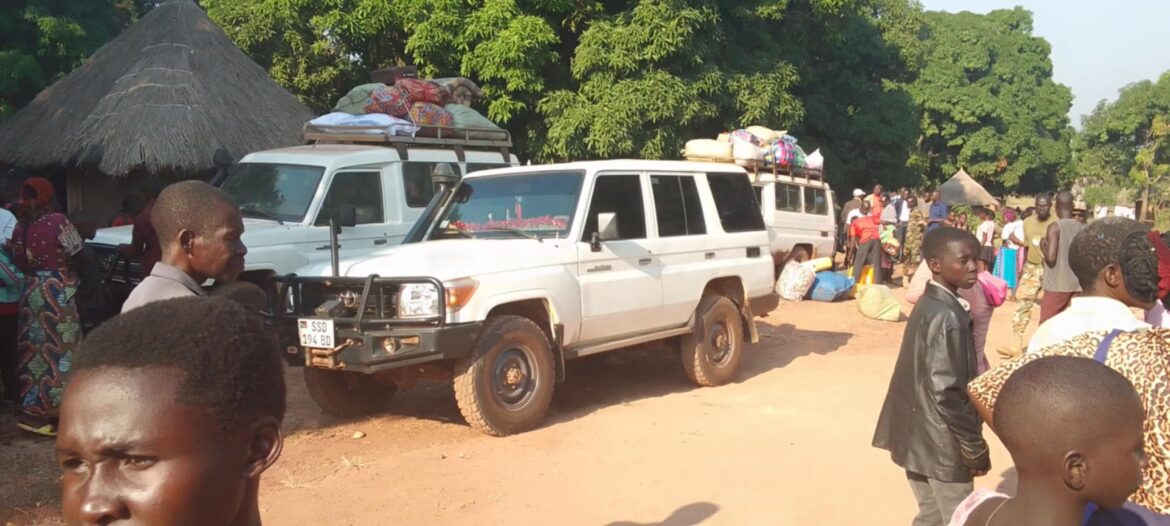By Baraka John
Tombura County is experiencing a humanitarian crisis, with the fresh escalation of inter-communal conflict displacing over 87,000 people. Authorities report that 39,497 households, amounting to 87,671 individuals, have sought refuge in seven camps located in Tombura town. Additionally, 5,996 individuals, or 866 households, have fled to Source Yubu Payam, further exacerbating the county’s dire situation.
According to Lucy Edward, the acting coordinator of the Tombura County Relief and Rehabilitation Commission (RRC), the daily displacement of people has been triggered by ongoing violence, including abductions, killings, and the destruction of homes.
“What causes this daily displacement is the abduction of people, killings, and sporadic gunshots. Yesterday [Wednesday] in a place called Gamunakpe, a woman was shot by armed men when she went to collect sweet- potatoes from her farm yard, but she did not die”. Lucy said
The Tombura County Relief and rehabilitation coordinator said the violence has escalated to the point where civilians are no longer safe, even in their own homes.
She said, in a tragic incident on Wednesday, a woman was shot by armed men while collecting sweet potatoes from her farm in Gamunakpe. Fortunately, she survived the attack, but such incidents are becoming increasingly common.
The displaced population, now living in overcrowded camps, is struggling to survive.
Lucy said the displaced communities lack food, medical assistance, and basic sanitation in the camps. With limited access to their homes and gardens, residents can only retrieve food with the escort of government forces or UN peacekeepers.
Tombura County Commissioner Mathew Mabenge expressed grave concern over the situation, calling it “desperate.” “Most of the people are leaving Tombura for neighboring counties in search of safety,” he said. “The situation is very bad.”

Inter-communal conflict displaced over 87,000 people (Photo Credit: King News)
In response to the crisis, the Governor of Western Equatoria, on December 5, 2024, formed a 30-member committee comprising state MPs and members of independent commissions. The committee, headed by Deputy Governor Daniel Badagbu Riimbasa, was tasked with investigating the root causes of the ongoing conflict. However, during their visit, reports of killings, kidnappings, and the destruction of homes continued to surface.
Commissioner Mabenge suggested that the committee’s presence has had no effect on reducing the violence.
“Whey [committee] they [armed men] were talking about peace and they are still kidnapping people, shooting people, killing innocent people. The only resolution we came up with is to deploy more forces in Tombura at least to protect the rest of the people who are left behind”. He said
He voiced frustration over the lack of progress, stating that despite the committee’s efforts to promote peace, the violence has not subsided.
The United Nations Mission in South Sudan (UNMISS) has attributed the conflict to tensions between the Azende and Balanda tribes, fueled by political rivalries and competition for leadership roles. The UNMISS report indicates that the power struggle, intensified by political influence and the control of traditional authority structures, has created an environment ripe for violence.



